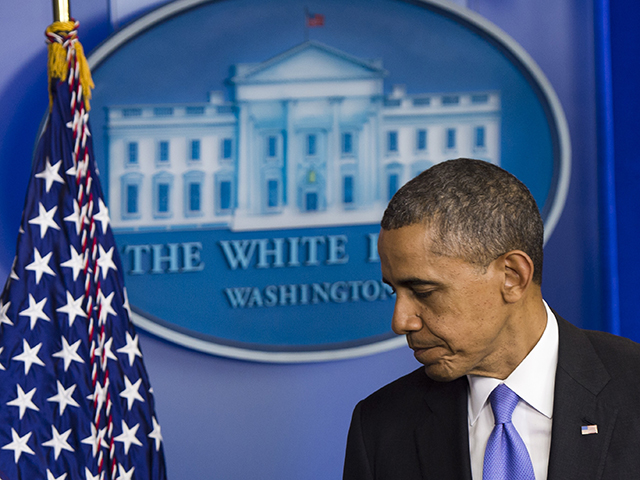Will this be the most anti-climactic State of the Union speech ever? Quite possibly, yes. At least in previous iterations, there was an element of suspense regarding the speech’s actual content. Not this time.
For weeks, if not months, the President and his surrogates have telegraphed how the State of the Union speech will focus on income inequality and how the rich are getting richer. In other words, expect a populist-laden diatribe against conservatives and conservative policy proposals. Isn’t all this pomp and grandeur meant to elicit national unity—if only for a moment?
The Daily Signal depends on the support of readers like you. Donate now
The irony is that for the President, who has an eye on his legacy, laying out a series of proposals that involve real collaboration with Republicans would help him tremendously toward that political end.
The tragedy, of course, is that the state of our union is not strong. According to nearly every economic indicator, our economy is not growing. The unemployment rate, consumer confidence, and now even the stock market reveal a weak economy with few signs of hope.
For the millions of seniors in our country’s colleges and universities, the prospect of finding long-term, meaningful employment after graduation looks remarkably bleak. Adding insult to injury, the average college graduate will now have to worry about paying off nearly $30,000 in college debt. On this, expect the President to either call for expanding Pell Grants (which will only continue to inflate college tuition) or propose a gimmick like replacing the U.S. News and World Report College and University rankings with a government-run ranking system that “penalizes” institutions for not being more affordable.
Expect such ideas to go nowhere, like most of the items on the President’s laundry list in the State of the Union. This cynicism is not without basis—as cleverly showcased in a recent National Journal article listing the scant accomplishments from last year’s State of the Union.
As he did last year, expect the President to call for raising the federal minimum wage, increasing infrastructure spending, and reducing carbon emissions in order to combat climate change. While these are certainly the goals of the progressive caucus, they are hardly the issues keeping most Americans up at night. More Americans are worried about paying their mortgages or figuring out what to do about their health insurance after receiving letters that their health plan has been cancelled because of Obamacare.
This year’s State of the Union speech should focus with laser-like precision on specific ways that the government is going to get out of the way so that the private sector can create jobs and economic opportunities. The President could work with Republicans in Congress that are serious about doing something to simplify our tax code while removing sweetheart tax breaks for corporations and special interests.
And if the President is actually serious about doing something to reduce income inequality, then why not defy the teachers unions and other anti-education reform stalwarts by increasing choice and opportunity for all families—particularly those in low-income neighborhoods. By the President’s own admission, education is one of the keys that afforded him the opportunity to serve as our country’s chief executive. Why deny this same opportunity of receiving a quality education to the millions of families in our country’s inner cities that would welcome an opportunity to send their children to a charter, private, or even a public school of their choice?
One can dream, right?
And that’s precisely the rub. As much as I want to believe that the President’s speech will provide a tangible olive branch to those that do not share his big government philosophy, it’s almost certain that I will be disappointed.





























